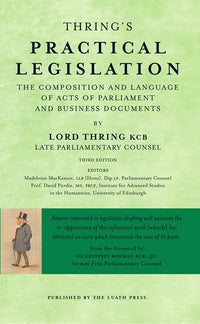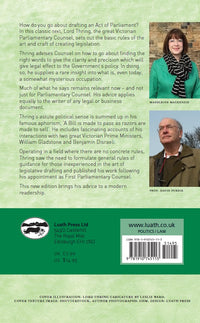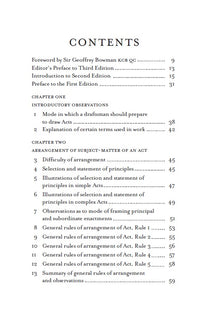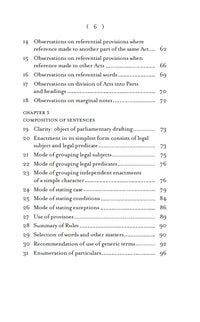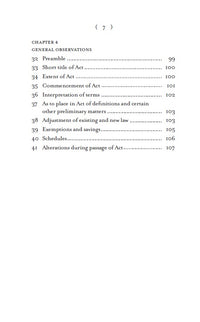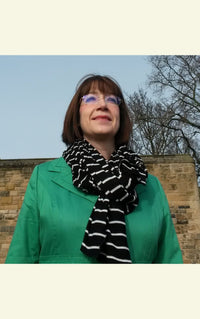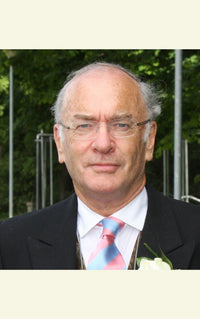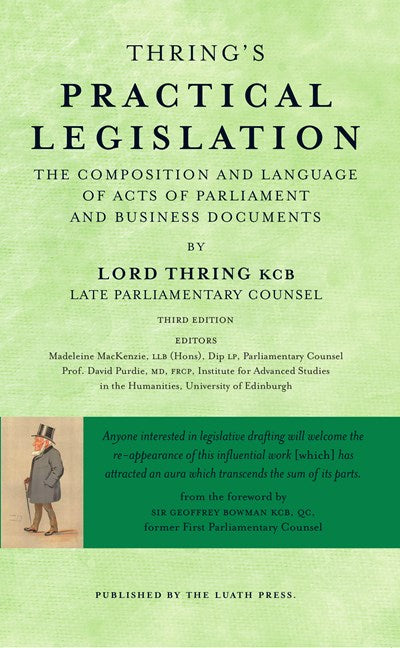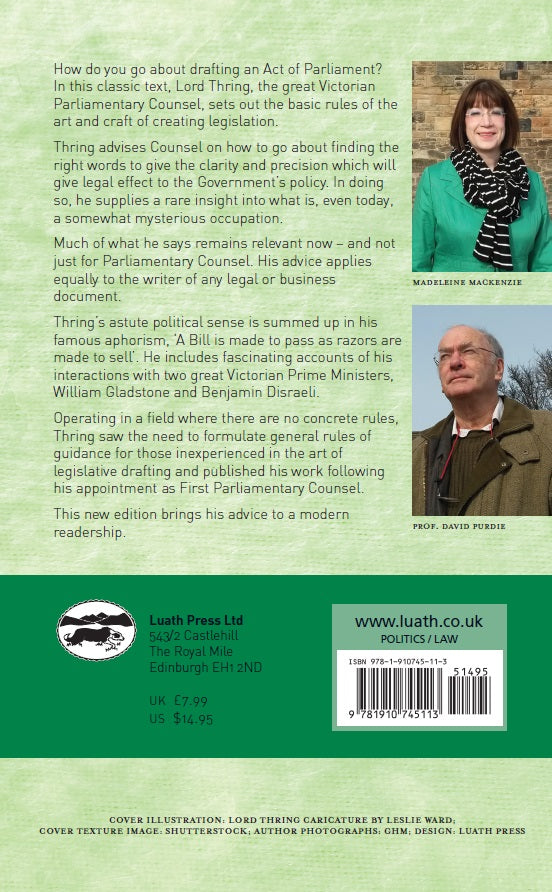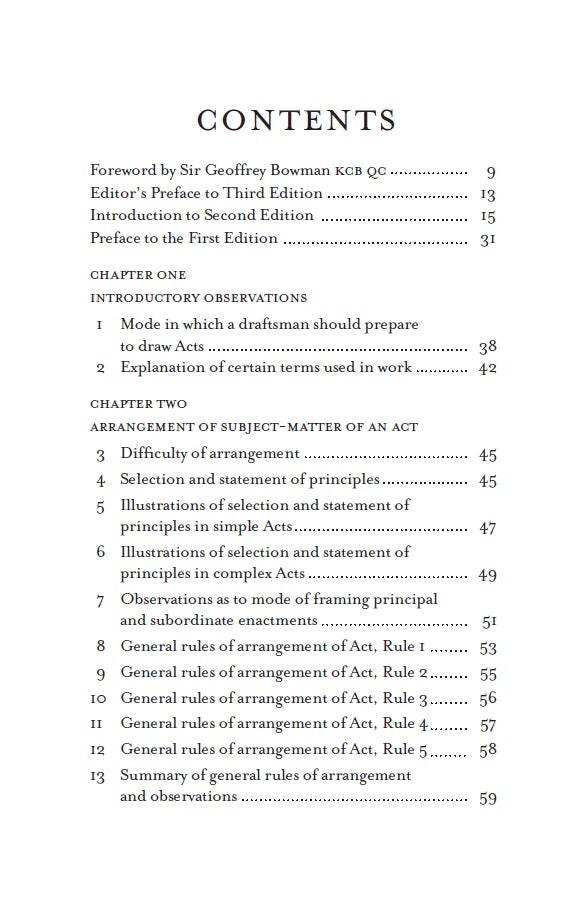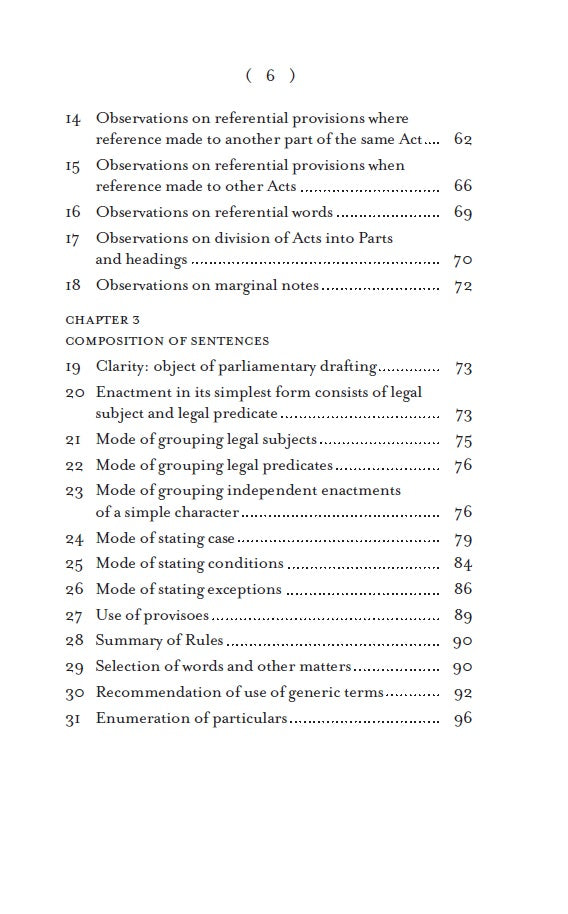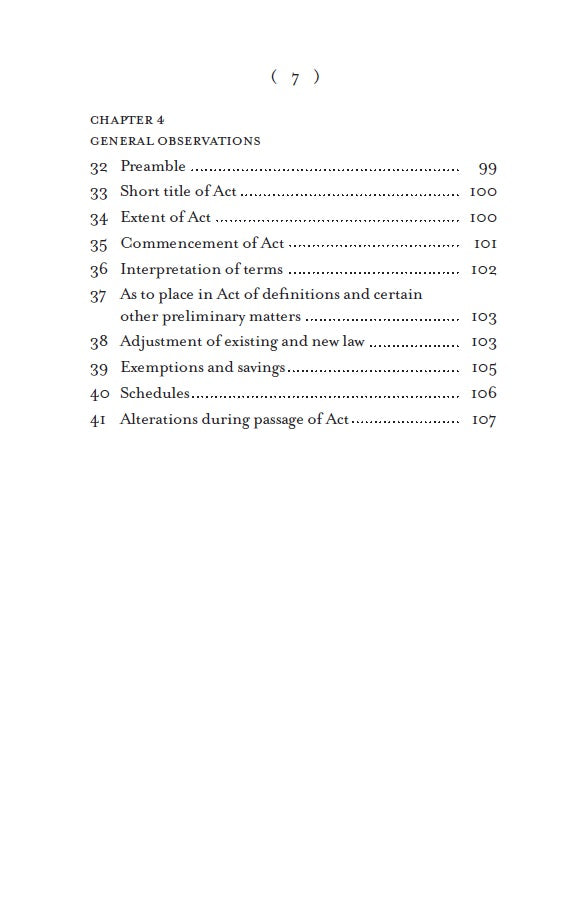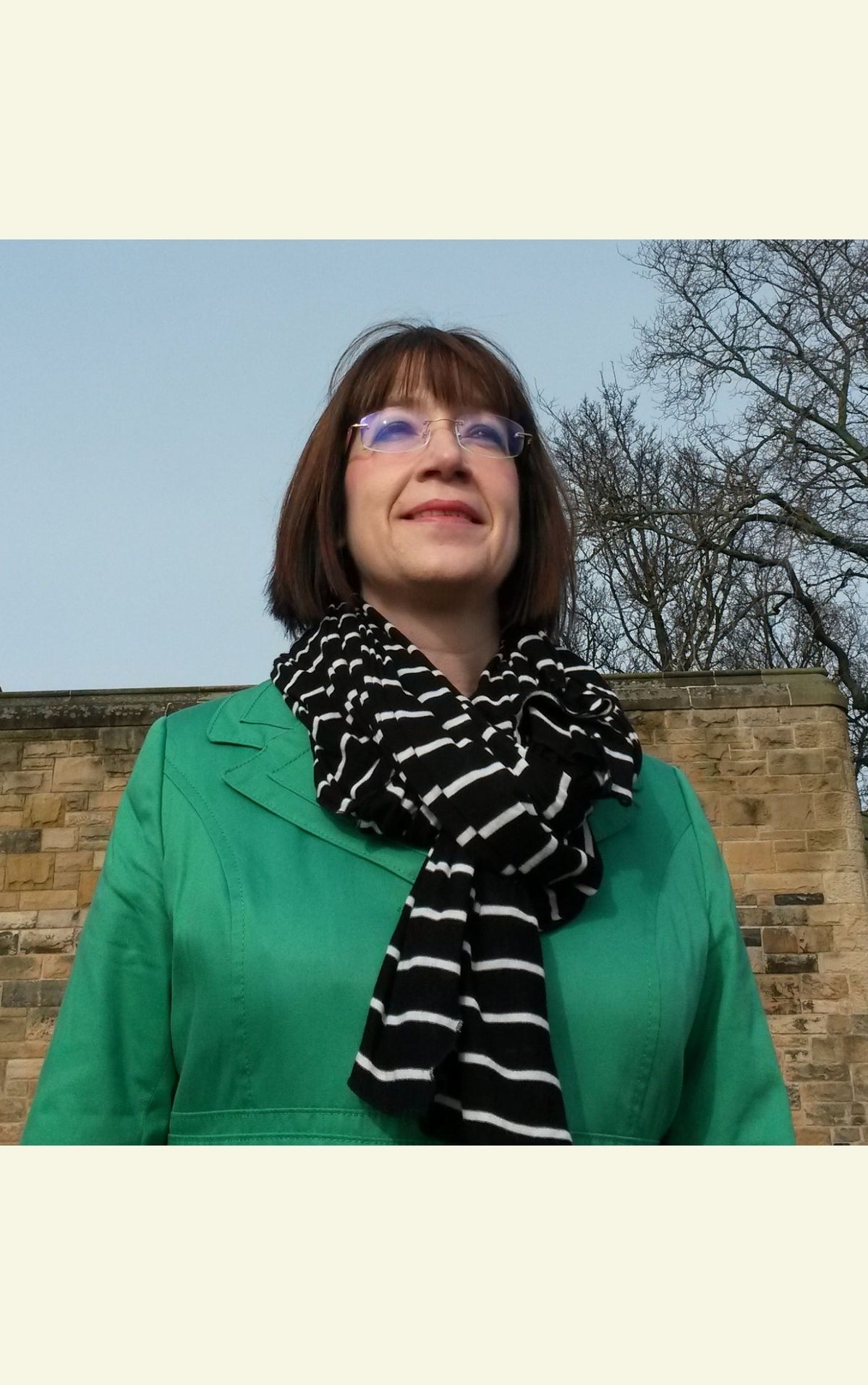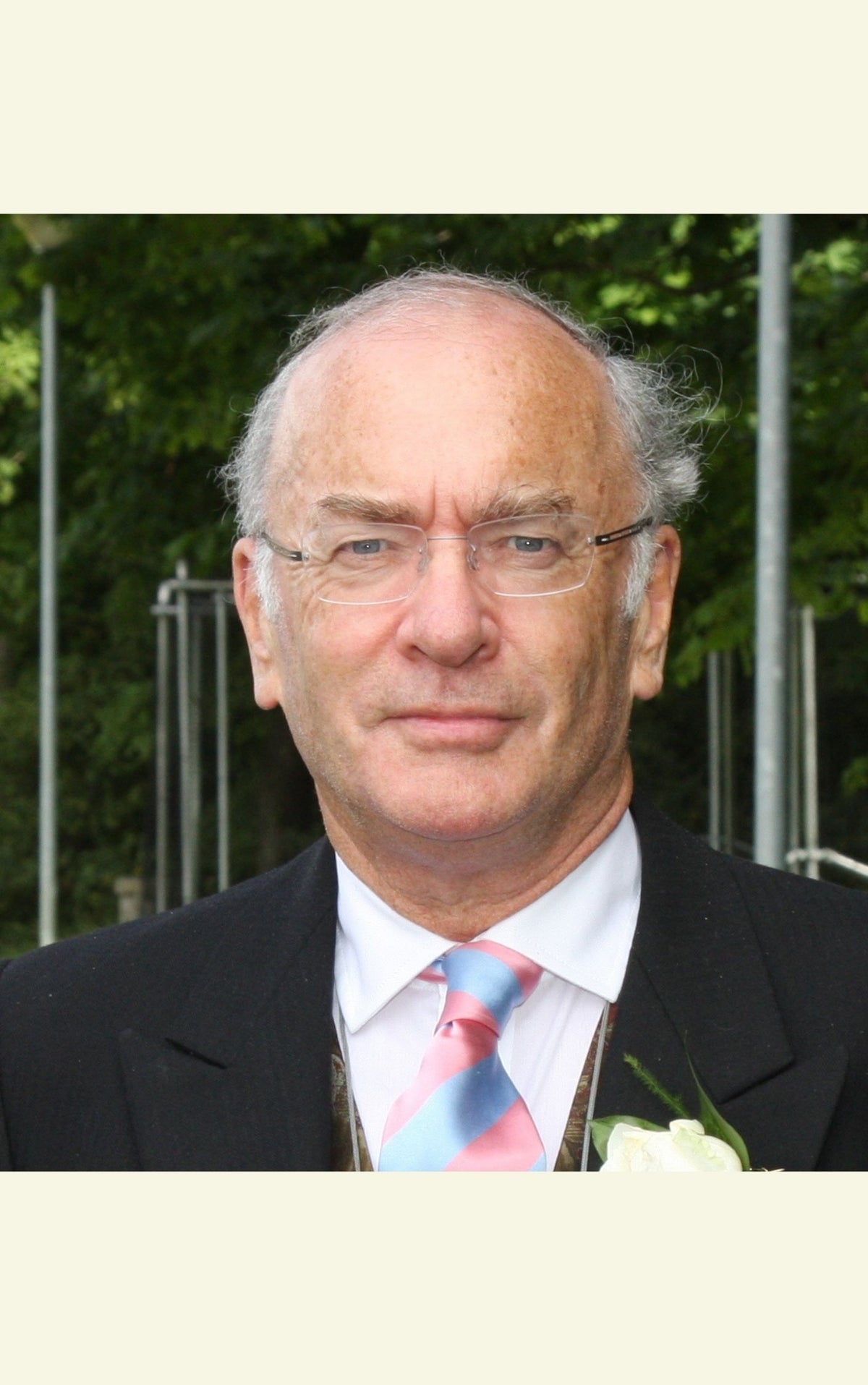Thring’s Practical Legislation
The Composition and Language of Acts of Parliament and Business Documents
- Regular
- £7.99
- Sale
- £7.99
- Regular
- £7.99
- Unit Price
- per
Click here to learn about our Ebooks.
About the Book:
How do you go about drafting an Act of Parliament?
In this classic text, Lord Thing, the great Victorian Parliamentary Counsel, sets out the basic rules of the art and craft of creating legislation. Operating in a field where there are no concrete rules, Thring saw the need to formulate general rules of guidance for those inexperienced in the art of legislative drafting and published his work following his appointment as First Parliamentary Counsel. Much of what he says remains relevant now and so, this new edition presents it to a modern readership.
Reviews:
Thring's Practical Legislation has been popular with legislative drafters for a long time. RONAN CORMACAIN, Taylor & Francis
Anyone interested in legislative drafting will welcome the re-appearance of this influential work [which] has attracted an aura which transcends the sum of its parts. SIR GEOFFREY BOWMAN KCB, QC, Former First Parliamentary Counsel from the foreword
About the Author:
LORD THRING (1818-1907) was educated at Shrewsbury School and Magdalene College, Cambridge. After being called to the Bar he developed an interest in legislative drafting and in 1869 became the first head of the Office of the Parliamentary Counsel in London. He served as First Parliamentary Counsel from then until his retirement in 1886 and died in 1907.
 MADELEINE MACKENZIE was born in Inverness and educated at Inverness High School and the Law School of the University of Aberdeen. Parliamentary Counsel since 1990, first in London and now in Edinburgh, she is a contributor to the 10th edition of Craies on Legislation (2013).
MADELEINE MACKENZIE was born in Inverness and educated at Inverness High School and the Law School of the University of Aberdeen. Parliamentary Counsel since 1990, first in London and now in Edinburgh, she is a contributor to the 10th edition of Craies on Legislation (2013).
 DAVID PURDIE was educated at Ayr Academy and Glasgow University. He is an Hon. Fellow of Edinburgh University’s Institute for Advanced Studies in the Humanities, where his central interests are in the literary and philosophical components of the Scottish Enlightenment.
DAVID PURDIE was educated at Ayr Academy and Glasgow University. He is an Hon. Fellow of Edinburgh University’s Institute for Advanced Studies in the Humanities, where his central interests are in the literary and philosophical components of the Scottish Enlightenment.

